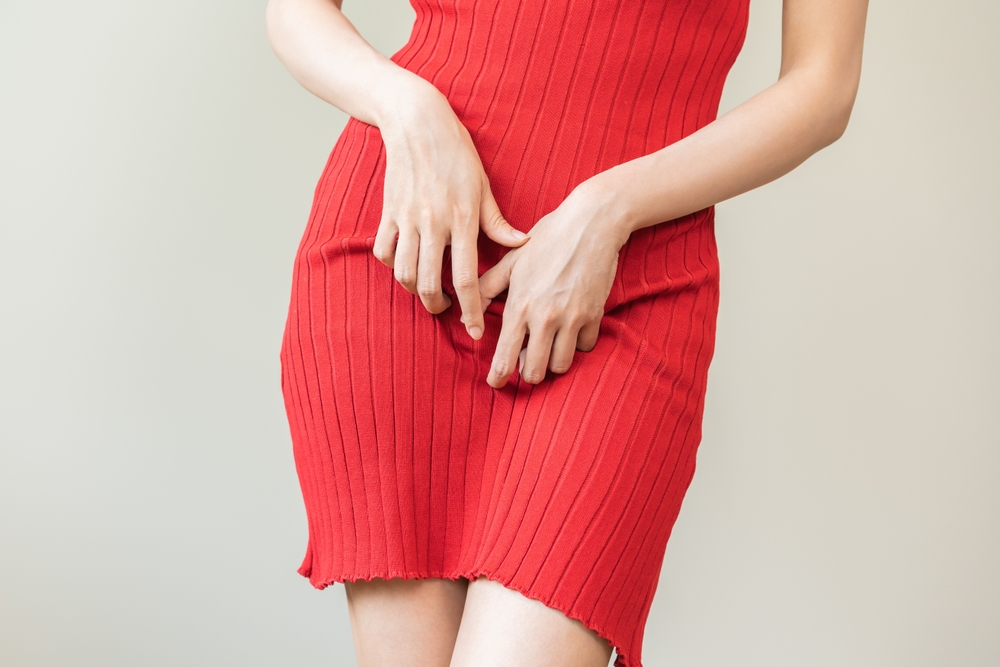To understand the enigma of an itchy vagina requires delving into the intricate world of women’s health. Vaginal itching is a common concern that can disrupt daily life and intimate comfort. In this article, we will explore what causes vaginal itching, reasons for vaginal itching, and effective solutions to alleviate the discomfort associated with an itchy vagina.
The diagnosis of an itchy vagina is not uncommon, especially for experienced gynecologists in Bradenton, Florida. Choosing a suitable medical professional to share your intimate health issues can be a challenge, so make sure you do thorough research and pick the most experienced doctor with whom you feel comfortable and safe. Doctors such as Dr. Arunachalam Jothivijayarani are recognized and renowned experts in their field so you do not need to worry, just relax and freely share your concerns and questions.
Understanding the Itchy Vagina Phenomenon
Understanding the itchy vagina phenomenon is crucial for women’s health and well-being. Vaginal itching, scientifically known as pruritus vulvae, is a sensory response that can manifest due to various factors, each requiring a nuanced approach. This sensation often prompts the instinct to scratch the delicate skin surrounding the genital area. It is essential to recognize that vaginal itching is not a standalone condition but rather a symptom with a myriad of potential causes.
These can range from benign irritants like synthetic fabrics and harsh cleansers to more complex issues such as infections, hormonal changes, and psychological factors. Diving into the intricacies of the itchy vagina phenomenon allows individuals to better comprehend the root causes, facilitating informed decisions about lifestyle adjustments, over-the-counter remedies, or seeking professional medical advice for a tailored and effective approach to relief.
What Causes Vaginal Itching?
Itching of vagina can be caused by a variety of different factors, so the reasons for vaginal itching as various. Some of the most common ones can include the following categories:
Irritants and Allergens:
- Synthetic Fabrics: Tight clothing made of synthetic materials can trap moisture, leading to irritation.
- Harsh Soaps and Cleansers: Chemical-laden products can disrupt the natural pH balance of the vagina, causing itching.
Infections:
- Yeast Infection (Candidiasis): Overgrowth of the Candida fungus can cause intense itching, often accompanied by a thick, white discharge.
- Bacterial Vaginosis: Imbalance in the vaginal flora can result in itching, along with a distinctive fishy odor.
- Sexually Transmitted Infections (STIs): Conditions like herpes and trichomoniasis may manifest with itching and discomfort.
Hormonal Changes:
- Menopause: Decreased estrogen levels can lead to thinning of the vaginal walls, causing itching of vagina.
- Pregnancy: Hormonal fluctuations during pregnancy may contribute to increased sensitivity and itching.
Lack of Lubrication:
- Insufficient lubrication during sexual activity can cause friction, leading to irritation and subsequent itching.
Stress and Anxiety:
- Emotional stress can impact the body’s immune response, potentially triggering or exacerbating vaginal itching.
Poor Hygiene Practices:
- Inadequate cleaning or excessive cleansing can disrupt the natural balance of the vagina, leading to irritation.
Non-Infectious Causes:
- Dermatitis and Allergies: Skin conditions or allergic reactions can result in itching.
- Nerve-related Issues: Certain neurological conditions may contribute to persistent vaginal itching.
Menstrual Products:
- Prolonged use of certain tampons or pads, especially those with added fragrances, can cause irritation.
Understanding the diverse range of factors that can contribute to vaginal itching is essential for accurate diagnosis and effective management of this common concern.
Dealing with an Itchy Vagina: Effective Solutions
Effectively dealing with an itchy vagina involves a multifaceted approach to address the root causes and provide relief from discomfort. Lifestyle modifications play a pivotal role, but here are some of the most effective solutions when you are facing an itchy vagina with no discharge.
- Lifestyle Modifications: Lifestyle modifications are integral in managing and preventing the discomfort associated with an itchy vagina. Choosing breathable fabrics, such as cotton underwear, facilitates proper airflow and reduces moisture accumulation, minimizing the risk of irritation. Adopting gentle hygiene practices is equally essential; using mild, fragrance-free soaps during external genital cleaning and avoiding the use of harsh douches helps maintain the natural pH balance of the vagina.
Beyond clothing and cleansing habits, paying attention to overall well-being is crucial. Managing stress through relaxation techniques or mindfulness practices can positively impact the body’s immune response, potentially reducing instances of itching. Incorporating these lifestyle modifications into daily routines forms a fundamental foundation for promoting vaginal health and preventing the recurrence of itching episodes.
- Over-the-Counter Treatments: Over-the-counter treatments offer accessible and often effective solutions for addressing an itchy vagina. These remedies are designed to provide relief from common causes such as yeast infections and mild irritations. Antifungal creams, readily available without a prescription, can be applied topically to combat yeast overgrowth and alleviate associated itching.
Additionally, hydrocortisone creams, which contain mild corticosteroids, prove beneficial in reducing inflammation and soothing the discomfort caused by various irritants. While these over-the-counter options can offer temporary relief, it is crucial to follow the recommended guidelines and consult with a healthcare professional if symptoms persist or worsen. A judicious and informed use of these treatments can be an accessible first step in managing vaginal itching for many individuals.
- Medical Intervention: In cases of persistent or severe vaginal itching, medical intervention becomes imperative for a thorough diagnosis and targeted treatment. Healthcare professionals may recommend prescription medications tailored to address specific underlying causes. For instance, stronger antifungal or antibacterial medications may be prescribed to combat infections that over-the-counter remedies cannot fully address.
Hormone therapy might be suggested for menopausal women experiencing itching due to hormonal imbalances. Seeking medical advice is especially crucial when dealing with nuanced situations such as an itchy vagina with no discharge, where a healthcare provider can conduct a comprehensive assessment to identify potential non-infectious causes like dermatitis or nerve-related issues. Professional guidance serves as a safeguard so that the treatment plan aligns with the patient’s unique health condition, creating a more effective and lasting resolution to the issue.
Itchy Vagina with No Discharge: Understanding the Nuances
Understanding the nuances of an itchy vagina with no discharge requires a careful exploration of potential non-infectious causes that may contribute to this perplexing condition. Unlike cases with noticeable discharge, situations where itching persists without such symptoms can be linked to various factors such as dermatitis, lichen sclerosis, or nerve-related issues.
Dermatitis, triggered by contact with irritants or allergens, can lead to inflammation and itching without necessarily producing discharge. Lichen sclerosis, a chronic skin condition affecting the genital area, may also manifest as persistent itching. Nerve-related issues, arising from neurological conditions, can contribute to sensory discomfort.
It is crucial to seek professional medical advice in such cases to undergo a thorough examination, enabling healthcare providers to identify the specific cause and recommend targeted interventions for relief.
Conclusion
In the realm of women’s health, an itchy vagina is a common but manageable concern. By understanding the diverse causes and adopting effective strategies, individuals can reclaim comfort and confidence. Remember, addressing vaginal itching goes beyond mere symptom relief – it involves promoting overall well-being and maintaining a harmonious balance in the delicate ecosystem of women’s health. In case there are some questions left unanswered, feel free to contact our medical center and ask away! We are here for you.


